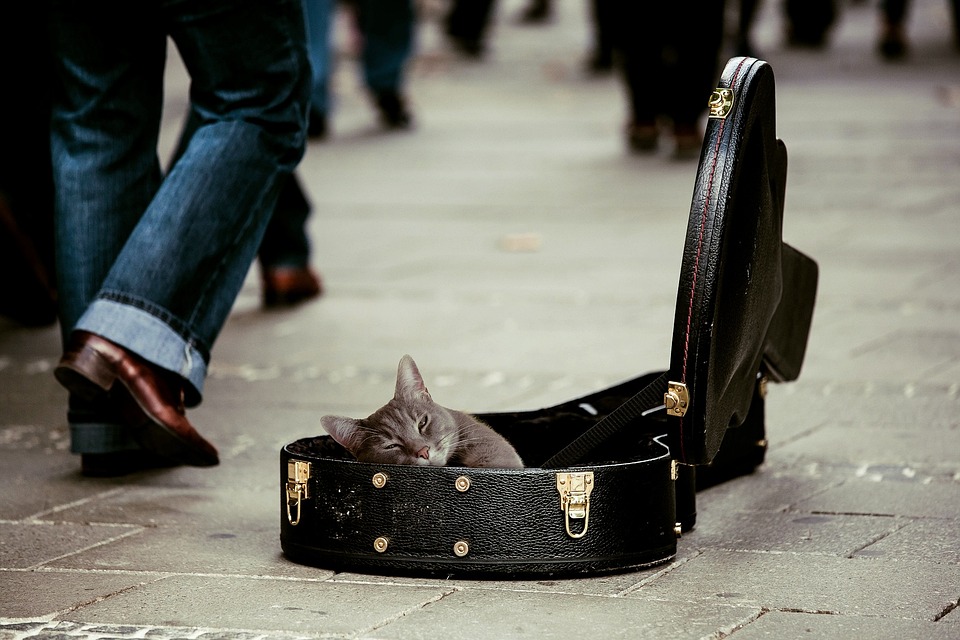Understanding Cat Vaccinations: What Every Cat Owner Should Know
Introduction:
As a cat owner, one of the most important responsibilities is to ensure the health and well-being of your feline companion. Vaccinations play a crucial role in protecting cats from various infectious diseases that can be potentially life-threatening. In this article, we will explore the importance of cat vaccinations, how they work, and the common vaccines available for cats.
Why Vaccinations are Important:
1. Preventing Infectious Diseases: Vaccinations are designed to stimulate your cat’s immune system to produce protective antibodies against specific diseases. By vaccinating your cat, you can significantly reduce the risk of them contracting diseases such as rabies, feline distemper, feline herpesvirus, and feline calicivirus.
2. Protecting Your Cat’s Health: Vaccinations are essential for maintaining your cat’s overall health. They can prevent severe illnesses, reduce the likelihood of hospitalization, and even save your cat’s life.
3. Reducing the Spread of Diseases: Vaccinated cats are not only protected from diseases themselves but also contribute to the overall community health. By reducing the spread of diseases, you are helping to protect other cats in your area as well.
Types of Vaccinations for Cats:
1. Core Vaccines: Core vaccines are considered essential for all cats due to the severity of the diseases they protect against. These include the rabies vaccine, feline distemper (panleukopenia) vaccine, feline herpesvirus (FHV-1) vaccine, and feline calicivirus (FCV) vaccine.
2. Non-Core Vaccines: Non-core vaccines are recommended based on individual factors such as lifestyle and geographic location. These include the feline leukemia (FeLV) vaccine, feline immunodeficiency virus (FIV) vaccine, bordetella vaccine, and chlamydia vaccine.
Vaccination Schedule for Cats:
– Kitten Vaccination Series: Kittens typically receive their initial vaccinations at around 8 to 9 weeks of age. This series usually includes a combination of core vaccines and may vary based on the veterinarian’s recommendations.
– Booster Shots: After the initial kitten vaccination series, cats require booster shots to maintain their immunity. Booster shots are usually given annually or every three years, depending on the specific vaccine and the cat’s risk factors.
– The Importance of Regular Check-ups: Regular check-ups with your veterinarian are crucial to monitor your cat’s health and to ensure they are up-to-date on their vaccinations. These check-ups also provide an opportunity to discuss any concerns or questions you may have about your cat’s vaccinations.
Understanding Vaccine Safety:
1. Common Side Effects: Most cats experience mild side effects after receiving vaccinations, such as temporary lethargy or mild swelling at the injection site. These side effects typically resolve within a day or two.
2. Allergic Reactions: While rare, some cats may have allergic reactions to vaccines. Signs of an allergic reaction may include facial swelling, difficulty breathing, or hives. If your cat exhibits any of these symptoms, seek immediate veterinary care.
3. Vaccine-Associated Sarcoma (VAS): VAS is an extremely rare but serious potential side effect of vaccinations. It is a type of cancer that can develop at the injection site. However, the benefits of vaccination far outweigh the minimal risk of VAS.
Frequently Asked Questions (FAQs):
1. When should I start vaccinating my kitten?
It is recommended to start vaccinating kittens at around 8 to 9 weeks of age.
2. How often should my cat receive booster shots?
Booster shots are usually given annually or every three years, depending on the vaccine and the cat’s risk factors.
3. Are vaccinations mandatory for indoor cats?
While indoor cats may have a lower risk of exposure to infectious diseases, vaccinations are still recommended to provide them with protection and prevent the spread of diseases if they accidentally escape or come into contact with infected animals.
4. Can my cat have an adverse reaction to vaccines?
Adverse reactions to vaccines are rare but possible. If you notice any concerning symptoms after vaccination, consult with your veterinarian.
5. Can I vaccinate my cat myself at home?
Administering vaccines at home is not recommended. It is best to have a licensed veterinarian administer vaccines to ensure proper technique and safety.
6. Are there any risks associated with vaccinating my cat?
The risks associated with vaccinations are minimal compared to the potential benefits. However, it is essential to discuss any concerns with your veterinarian.
7. Can my cat receive vaccinations if she is pregnant?
Vaccinating pregnant cats should be done under the guidance of a veterinarian. Some vaccines may be safe during pregnancy, while others should be avoided.
8. Can cats be vaccinated against allergies?
Currently, there are no vaccines available specifically for allergies in cats.
9. Can cats receive vaccinations while on medication?
In most cases, cats can receive vaccinations while on medication. However, it is best to consult with your veterinarian to ensure there are no contraindications.
10. Can older cats be vaccinated?
Yes, older cats can and should be vaccinated to maintain their immunity and protect against diseases.
Conclusion:
Vaccinations are a vital component of responsible cat ownership. By understanding the importance of vaccinations, following a proper vaccination schedule, and consulting with your veterinarian, you can ensure the health and well-being of your beloved feline companion. Remember, vaccinations not only protect your cat but also contribute to the overall community health by reducing the spread of diseases.








